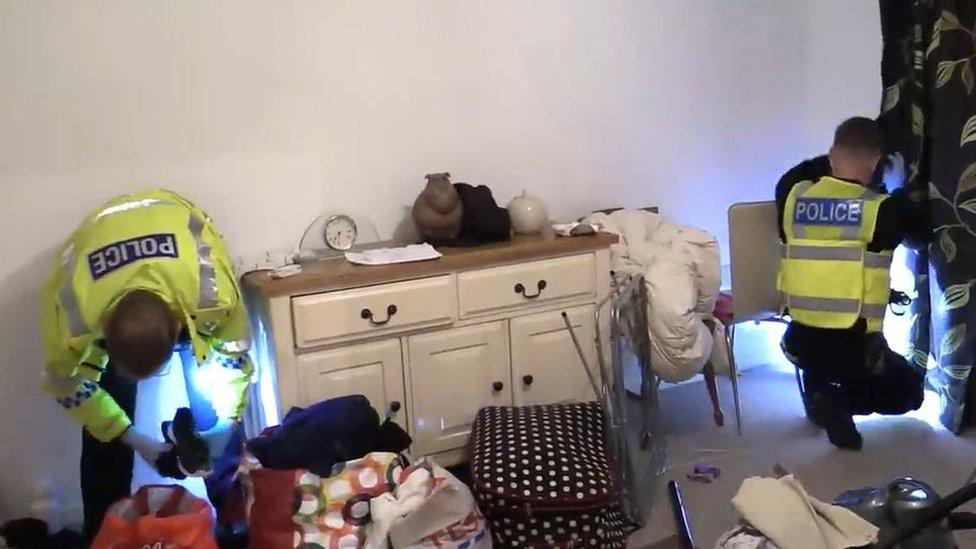Covid: Children 'more vulnerable' to county lines drug gang grooming
- Published
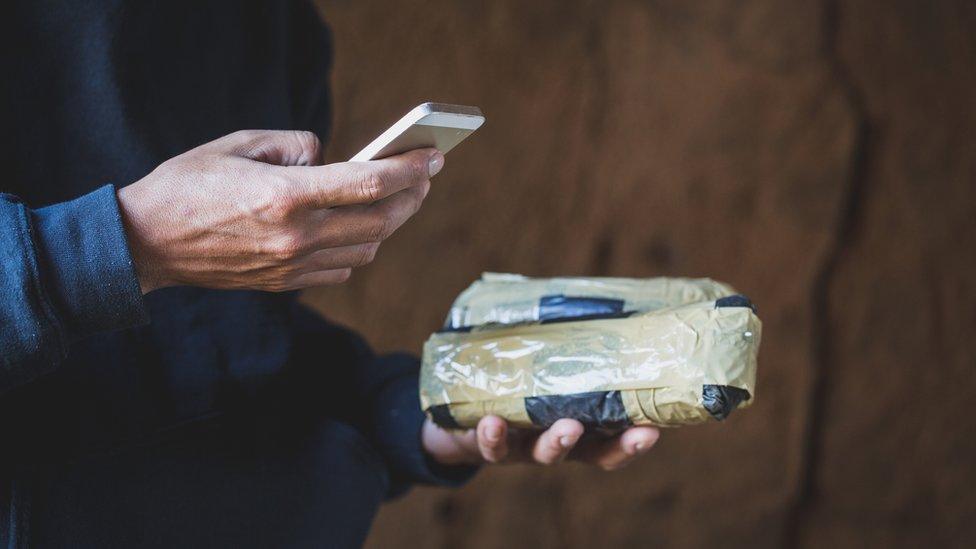
Charity Safe and Sound said they are supporting more children at risk of county lines gangs since the coronavirus pandemic
Children are being left more vulnerable to grooming by county lines drug gangs due to the coronavirus pandemic, a charity has warned.
Safe and Sound, which works to help children at risk of exploitation, said there has been a "significant" increase in the number of children needing help.
Chief executive Tracy Harrison said early intervention is key.
It comes as a mother, from Derby, said she has "lost" her son after he was targeted by dealers.
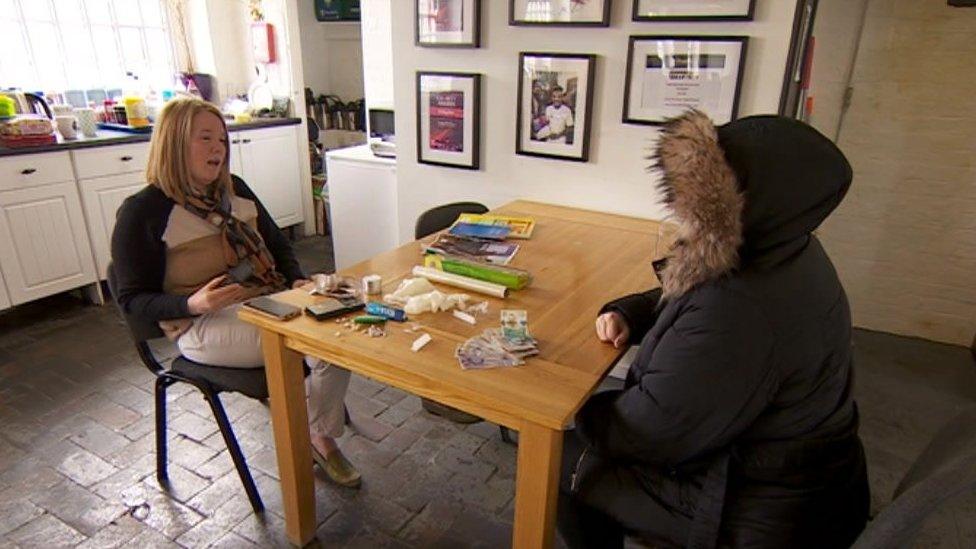
Safe and Sound chief executive Tracy Harrison (left) said more families are seeking support
Ms Harrison, a former police detective, said many children were groomed online as well as in person, with treats such as trainers and free alcohol or drugs used to lure them into a gang's control.
She said the coronavirus pandemic has left children isolated and "more vulnerable" to grooming, particularly online.
"We've seen an increase in grooming of children for county lines," she said. "What we've seen is children are more susceptible because of the vulnerability that the pandemic's caused.
"What the pandemic has done [is] it's isolated children more.
"Children haven't been able to do the normal things they do - they haven't been able to go to sport or music or art, or meet their friends.
"Their lives have changed through the pandemic, [as] they're not with friends and they're not in school, so they're isolated.
"When some groomer comes along with some treat and some attraction, they're more likely to be brought into that."
Ms Harrison said while some of the children have committed crimes, a more sympathetic approach is needed to tackle the problem of professional gangsters exploiting vulnerable minors.
"What's happening now with county lines is young children - boys and girls - are being labelled as drug dealers when actually they're victims, just the same as children who were sexually exploited were called child prostitutes 20 years ago," she said.
"It's a situation they can't escape from - they don't have contact with their families. They're taken, they're groomed, they're controlled, and they're put in debt.
"It can happen to any child, anywhere, at any time - it doesn't take account of ethnicity, of social background, of educational standard, and all children during teenage years can be vulnerable."

Analysis: Jeremy Ball, BBC East Midlands social affairs correspondent
"County lines" gangs are the modern-day Fagins who manipulate kids into committing crime. It's a way for dealers to move drugs into smaller towns without the risk of getting caught.
The children sell those drugs using dedicated "deal lines". The National Crime Agency says those lines make an average profit of more than £800,000 a year and there are a thousand different "county lines" across England and Wales.
Mandy told me how her 13-year-old son was shown how to turn off the tracker in his phone.
The prime minister told the BBC that "county lines" drugs gangs are "killing young kids" and he wants to see them "totally wound up".

'Keep your mouth shut'
Mandy - not her real name - said "alarm bells" were ringing when her son, then 13, came home "with an extremely large amount of cash" and expensive clothes and jewellery she could not afford to buy him.
After finding weapons and drug paraphernalia in his room, she confronted him and learned he was being used by gangs.
Her son soon started going missing for days on end, with the gang sending him to different towns and cities to sell drugs and threatening him.
"They held a knife to his throat and basically said 'keep your mouth shut and carry on'," she said.
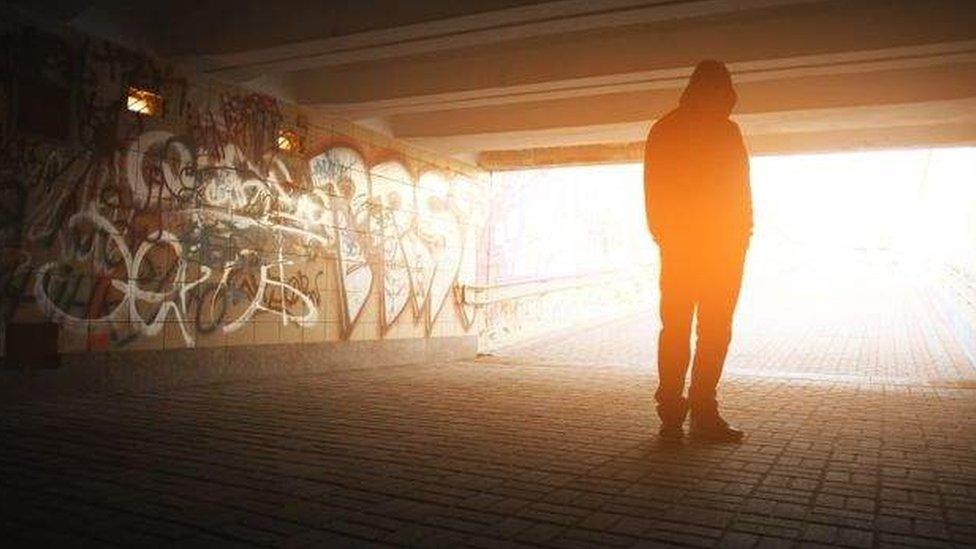
Other charities have said they are seeing a rise in cases of online exploitation
Mandy said her son's phone is still being regularly called by criminals, who have ruined his mental health.
"He was a bubbly, outgoing child," she said.
"[He] liked cooking, he liked his sports, and then as soon as all this started happening he totally changed - he got more and more aggressive and unpredictable.
"I always will love him because he's my son, but I hate what he's turned into.
"I want him to either be in a secure unit, a [young offenders institution] or a prison, because if we don't he'll get killed or kill somebody."

Follow BBC East Midlands on Facebook, external, on Twitter, external, or on Instagram, external. Send your story ideas to eastmidsnews@bbc.co.uk, external.
Related topics
- Published14 April 2021

- Published16 February 2021
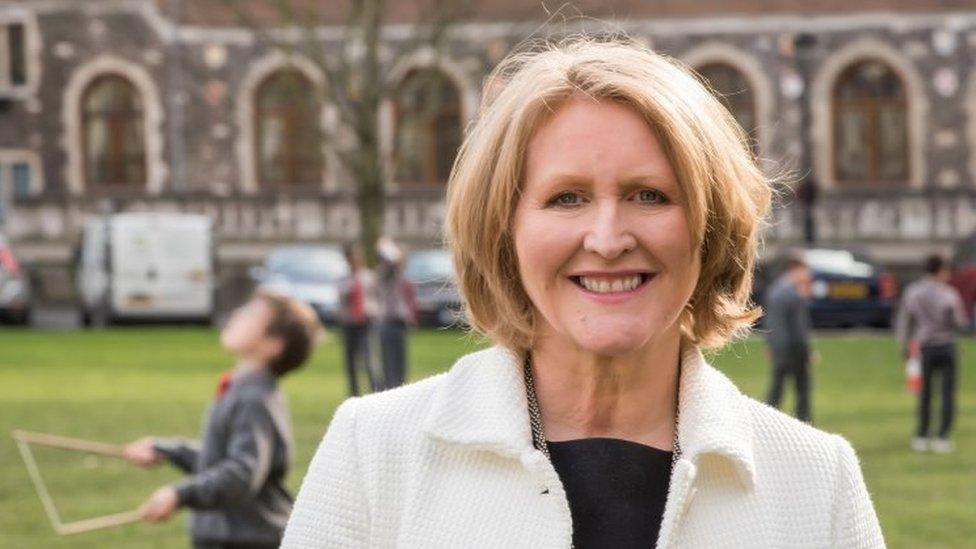
- Published8 February 2021
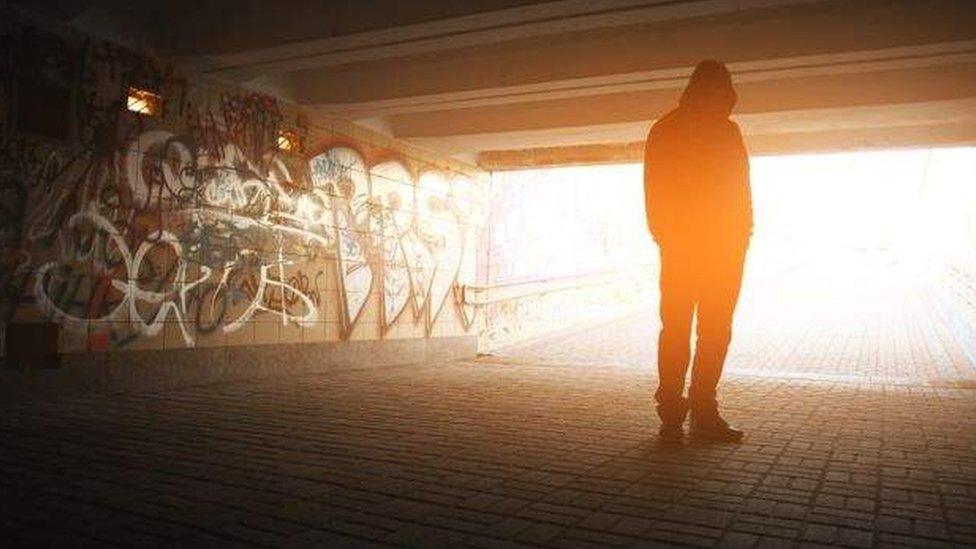
- Published1 February 2021
